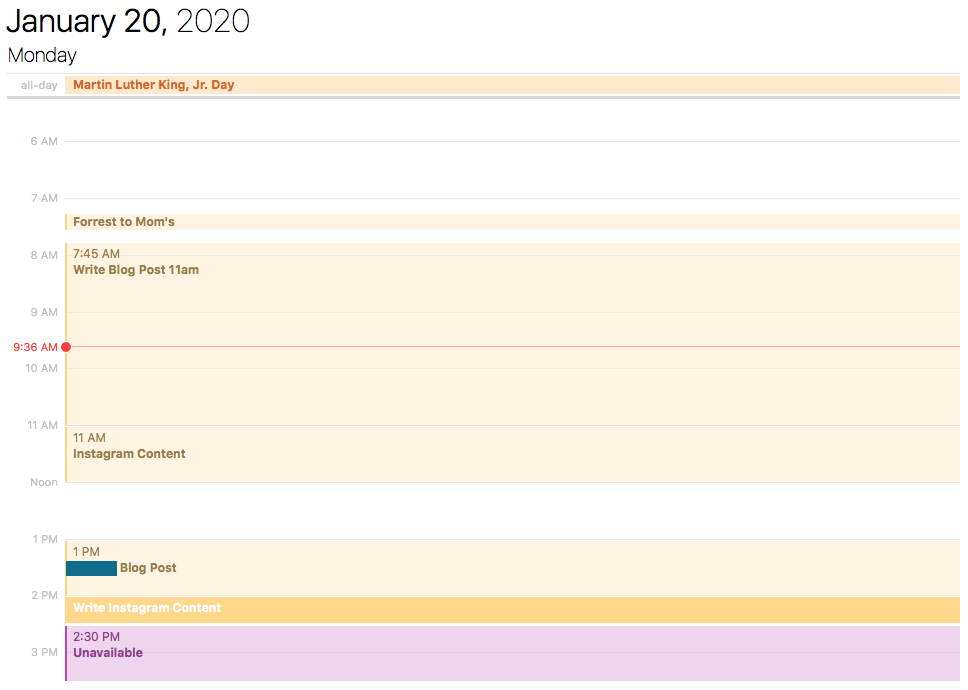Working from home is a different kind of stressful, isn’t it? I've never been a huge fan of working in an office--I like being alone and I'm very easily distracted.
But working from home isn’t exactly a cakewalk, either. It can be lonely and you can easily get distracted by other parts of your home (like that pile of laundry that has refused to fold itself for 2 days or the kitchen that needs a good cleaning). Plus, if you are also taking care of children and trying to work, it’s a whole other ball game.
Today, I want to talk about reducing stress while you’re trying to work from home effectively. This isn’t necessarily self-care, but it is related. Reducing your stress now will help reduce burnout later (or… right now); it will also help you feel less like you’re about to go off the rails at any moment. (Trust me, I’ve been there. Recently.)
If you’d like to read more self-care posts, click here to read more!
Reducing stress is different from person-to-person—so we aren’t going to focus on simple stuff. Some people might be soothed by essential oils; others might find them aggravating. This is going to be a bit more high level than “buy a diffuser” or “do your self-care routine!” Right now, I just don’t personally find stuff like that especially helpful if I’m trying to find methods to make myself feel less like a boiling kettle.
I hope these tips help you moving forward. And if you need a friendly ear, I’m always here to listen!
1. Get it all out: journal every day (even for 5 minutes).
A few days ago, I was having a rough day. I had multiple deadlines and a very cranky 4-year-old who was feeling ignored, isolated, and sad. To get paid as a freelancer, I have to meet my deadlines—but as a parent, I also felt like I couldn’t let Forrest down. I sat at the kitchen table while he colored and wrote in my journal for 10 minutes. I wrote down everything I was feeling: totally overwhelmed, guilty for wishing schools would just freaking open already (I know, I know), exhausted, guilty for being a mom who couldn’t interact with Forrest as much as I wanted, anxious that my home was a mess and I had every single laundry basket we own full of laundry to fold… the list goes on.
After the 10 minutes was up, I gave Forrest a big hug and a kiss and told him I needed to work. He felt better and I felt better. I hit all my deadlines.
Those 10 minutes of just getting the feelings out was worth it.
Here’s the thing: journaling might not be your thing. (Although, if you’re feeling frequently anxious or stressed, a journal is a great idea.) But there are lots of ways to just get the emotions out. You can sing along to a favorite old emo song. Call a friend to vent to. Let it out in the group text. Whatever works for you, talking about what’s going on can help so much.
2. Make it easy: find a routine that works for you.
Working from home is hard. And sometimes, reading all the tips in the world to work from home won’t help.
You need a routine and, specifically, you need one just for you. That’s why I’ve been writing a series of posts about routines; you can read them all here.
Here are a few of my suggestions to reduce stress in your routine:
Schedule in breaks.
Stagger your tasks. Mix harder, more mentally straining tasks with easier, simpler tasks.
Make your environment happy for you. This is a big one: you can have the best routine in the world, but if the space you’re in makes you crazy, then it won’t help at all. You might not have the space for your own office, but setting aside a corner in your bedroom or dining room to make just yours will make a huge difference.
Make sure you meet all your needs. That includes movement, time alone, time with others, time to relax, meals, coffee breaks… you can’t work 24/7 and never meet your basic needs. You simply can’t.
3. Make it simple: shed the tasks that aren’t serving you.
When you’re working in an office, there are sometimes tasks that you do that are so easy, you barely blink an eye. However, once things change, there may be tasks you need to talk to your work about to let them know: this doesn’t work, this won’t work, and I can’t keep doing it.
Here’s an example: I have a client who has a really roundabout process for completing tasks. In normal times, it would be no big deal, but right now, the chain of command has broken down so much, people are harder to reach, that it’s just impossible. Trying to chase down people to complete tasks was becoming a huge pain—so I let the client know, hey, this is driving me crazy, can we simplify this? And we did! Now, I don’t have to spend 2-3 hours every day trying to get in touch with people to pass on a document.
If something isn’t serving you or the people you work for… then change it. Make it easier. If you can’t reduce the stress, then try to remove it. Find a way to make it simpler for you to reduce the clutter of your day.
Do you have any tips for reducing stress while working from home?
I do want to share a few things I do during the day that help me a lot that are more specific. Here are a few ways I take a break (both before and during quarantine!) while working from home:
Do 10 minutes of step aerobics while watching TV.
Listen to a podcast while I make a cup of tea.
Sit outside with Remus.
Water my flowers outside.
Work on organizing my planner.
Read a few articles on Buzzfeed or scroll my favorite Twitter accounts.
Thanks for reading!







